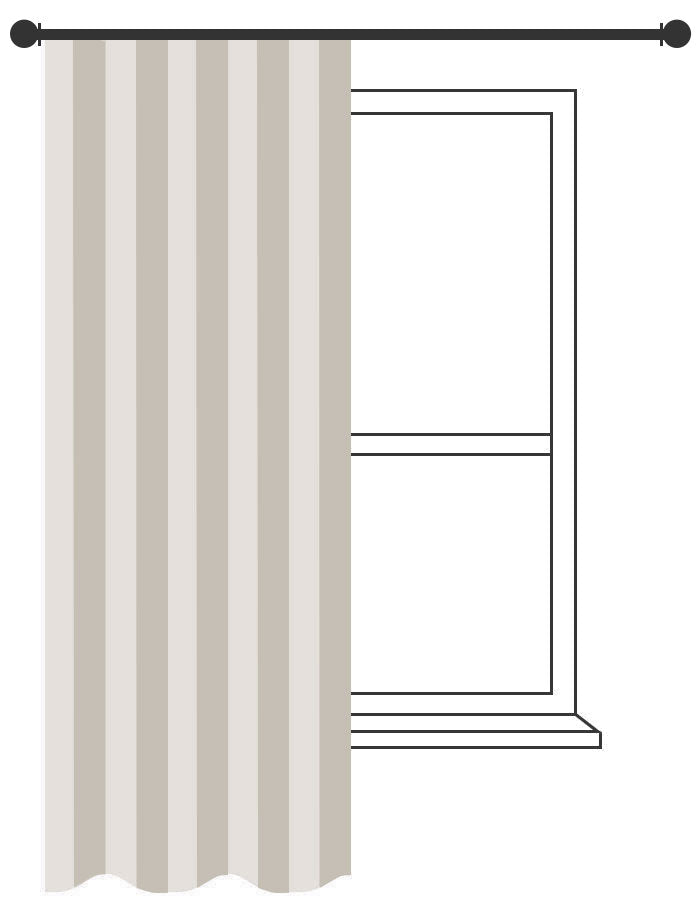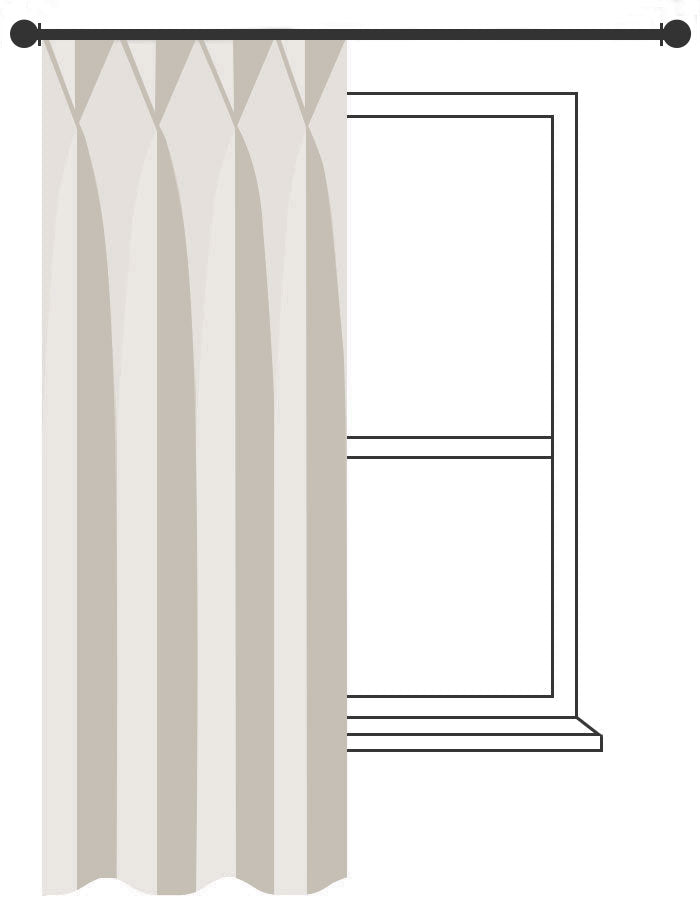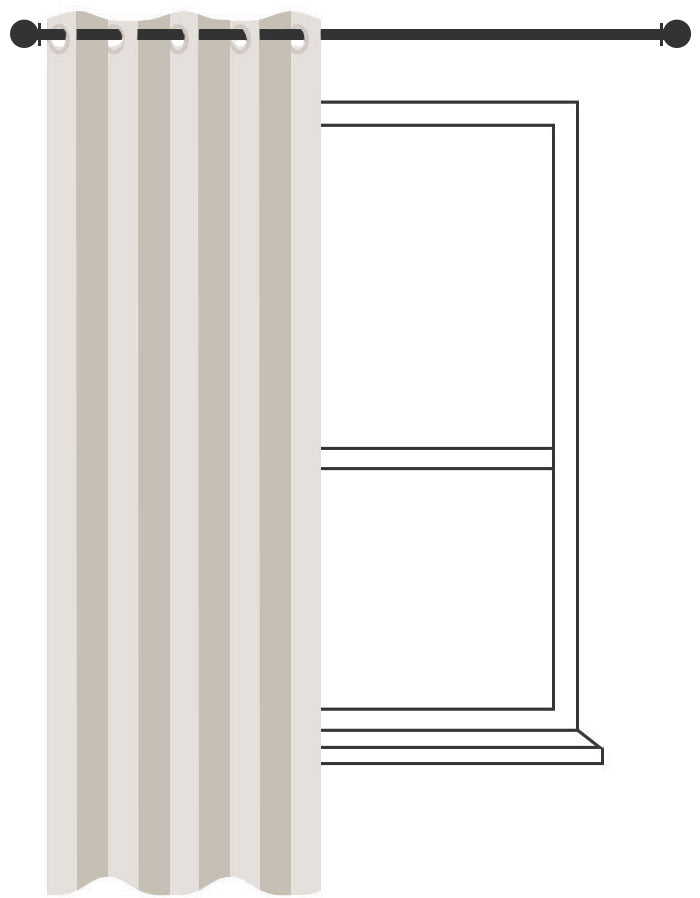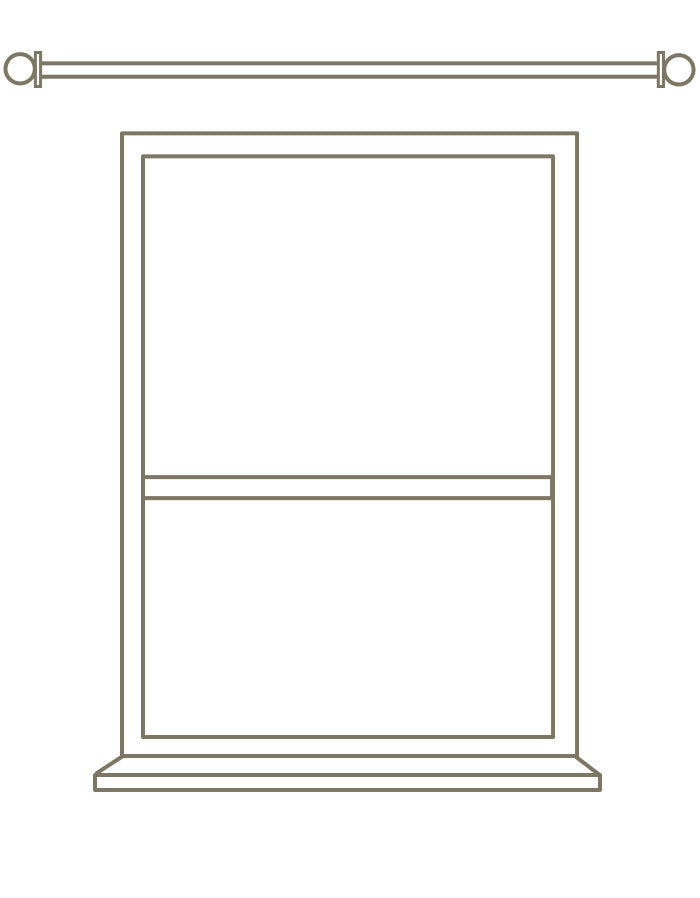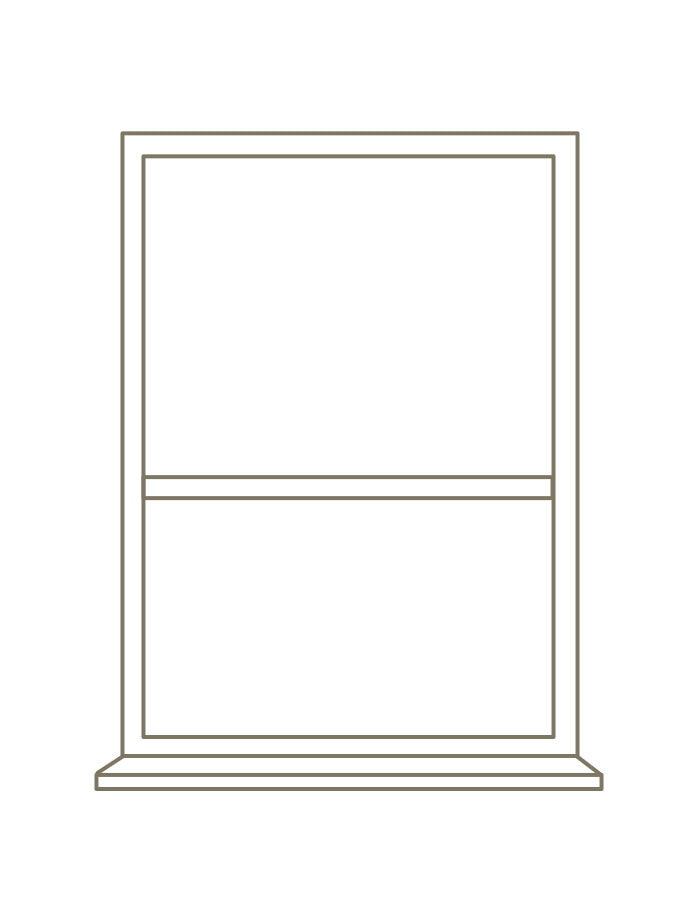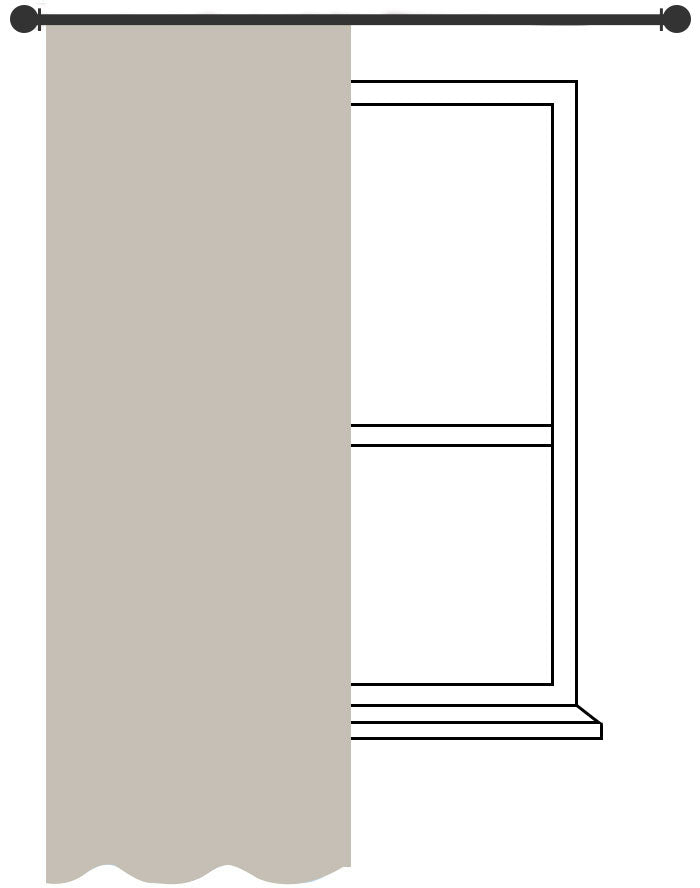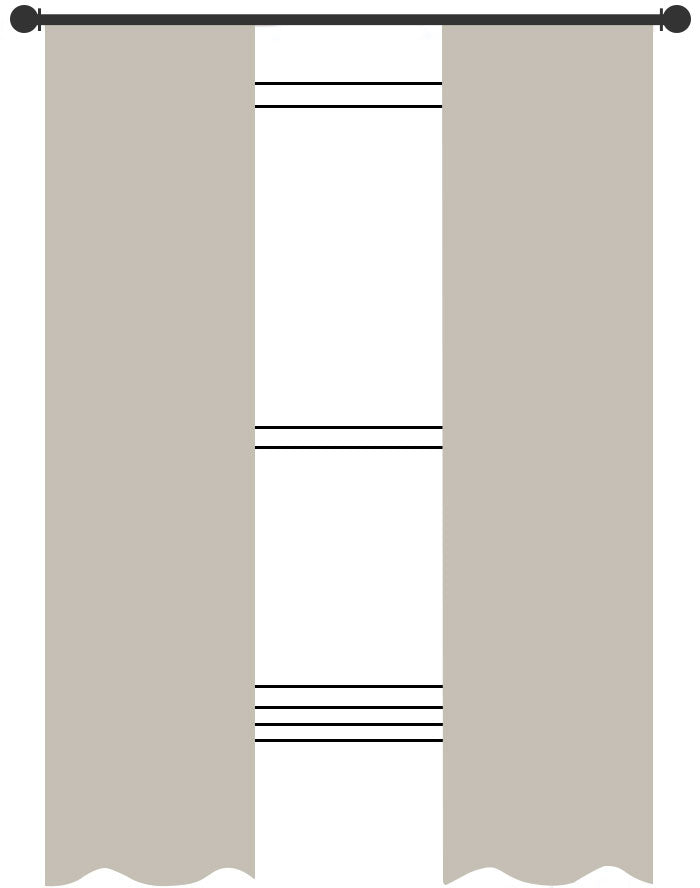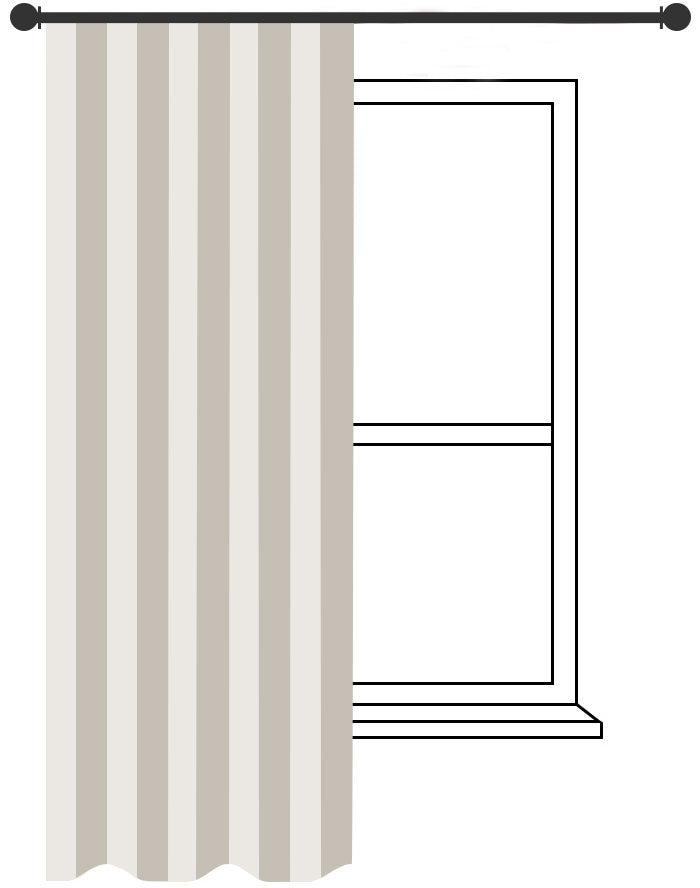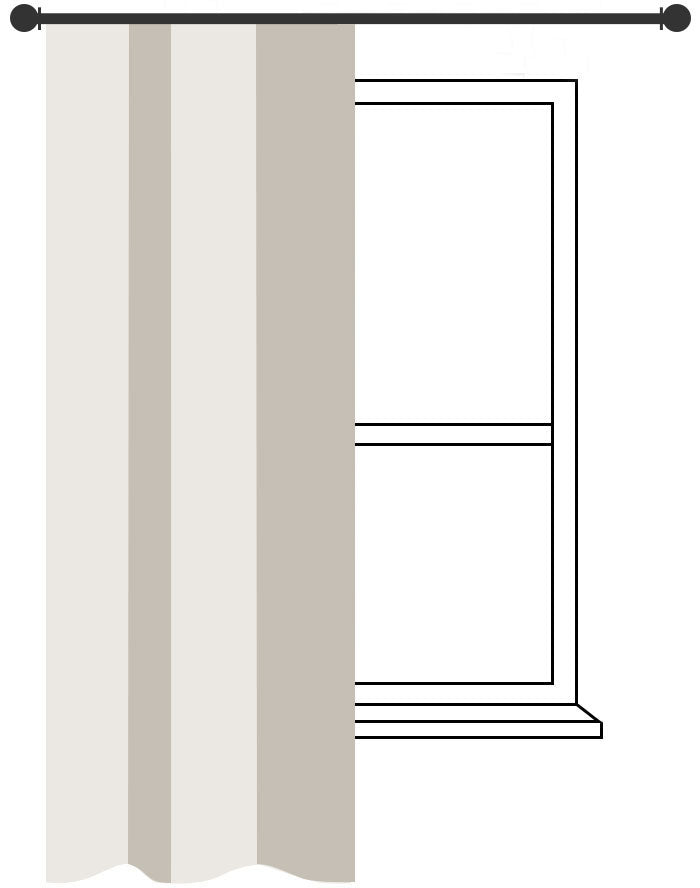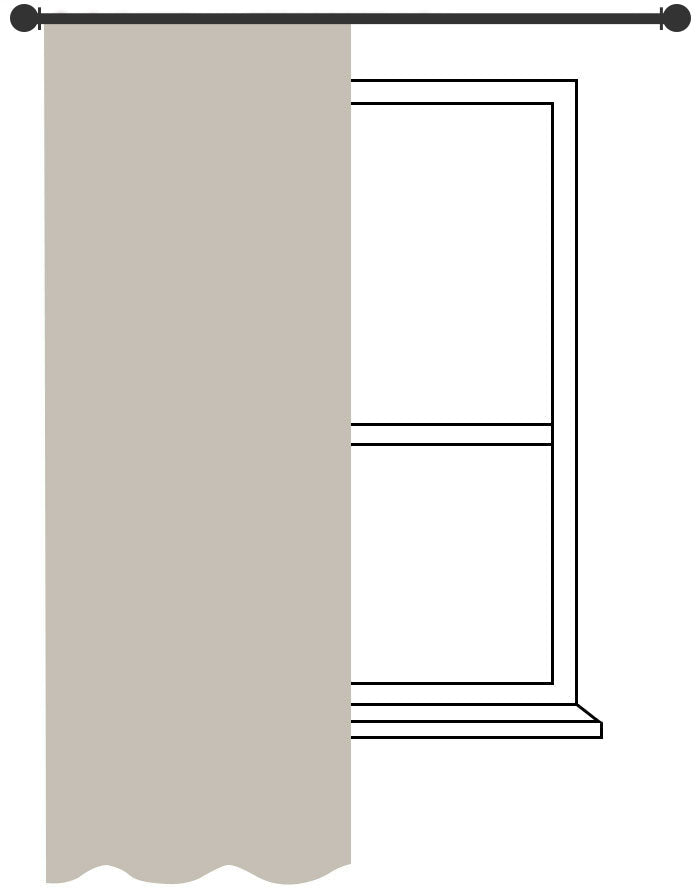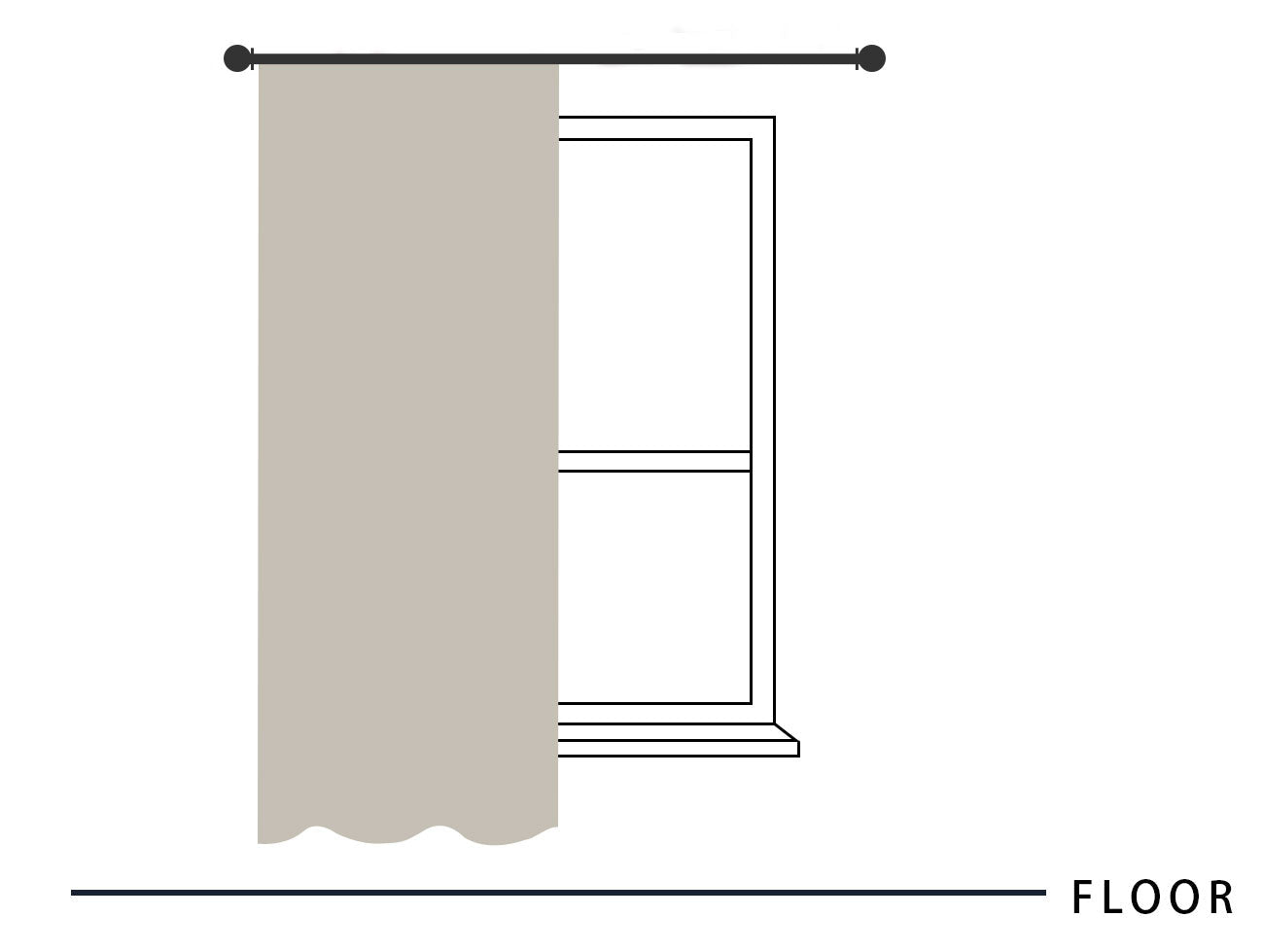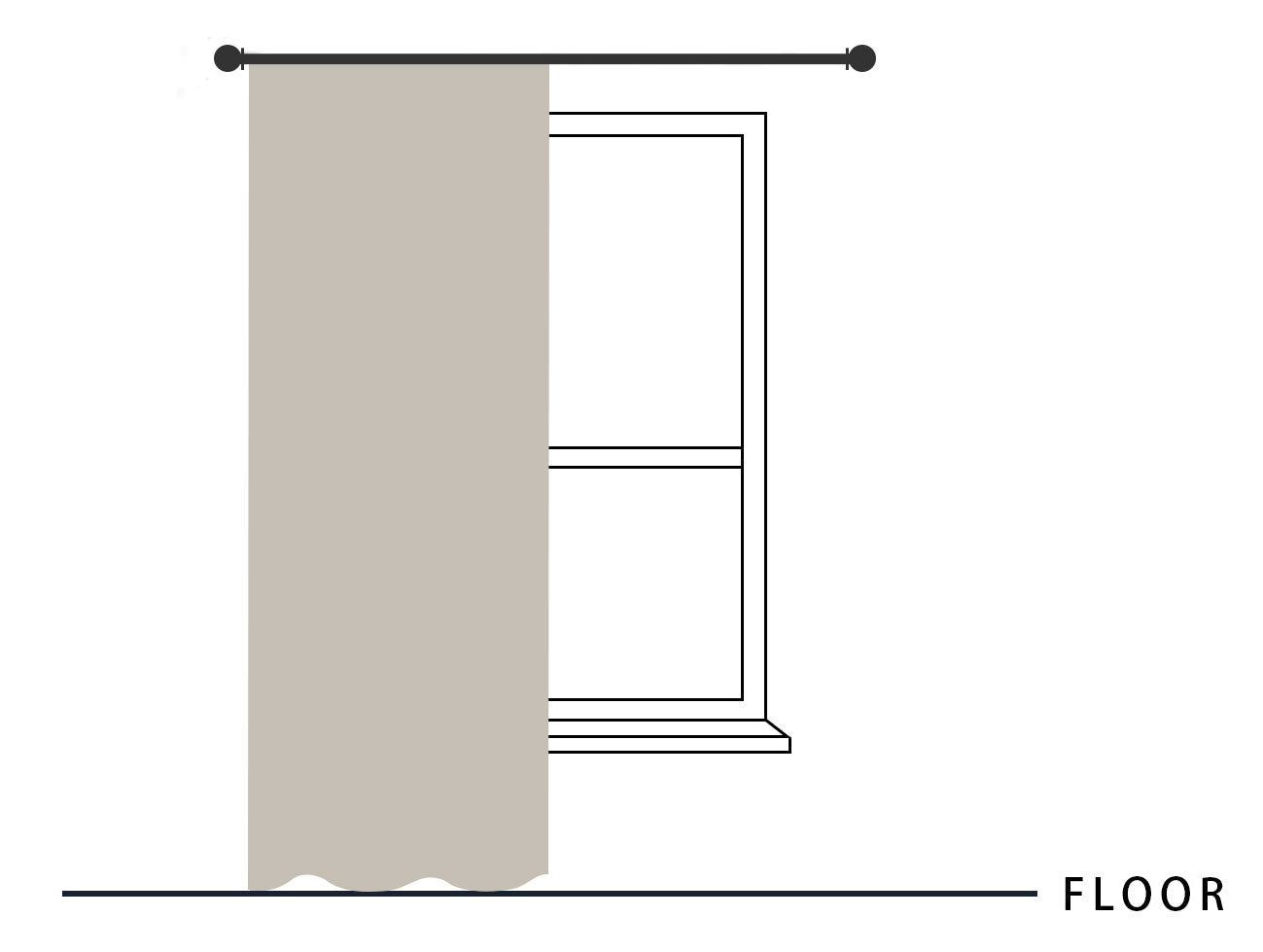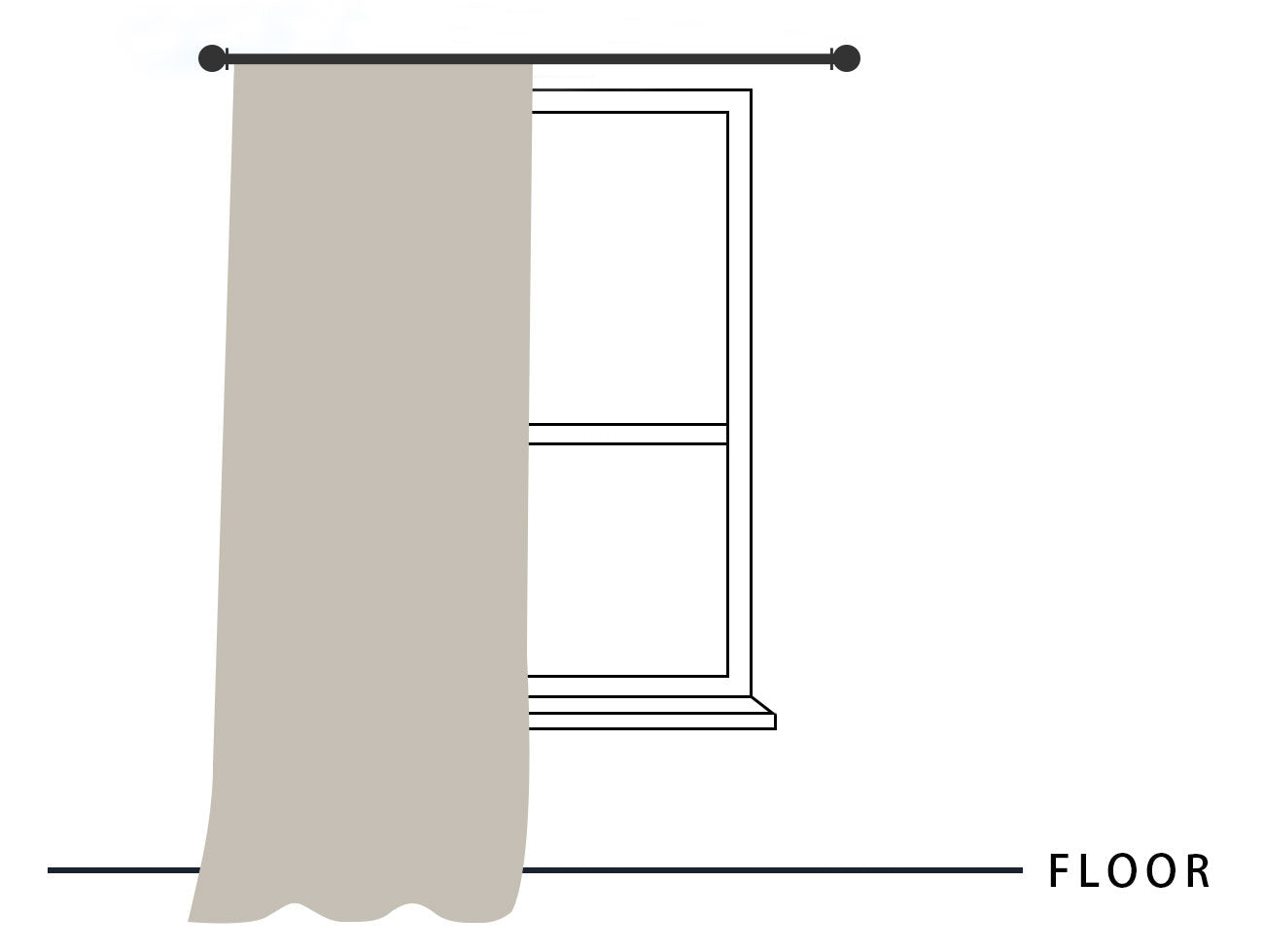Curtain Measurement Guideline
Easily simplify your curtain measuring process with our Measurement Finder, specifically designed to guide you step-by-step for a seamless, stress-free experience.
previous
What's your rod length?
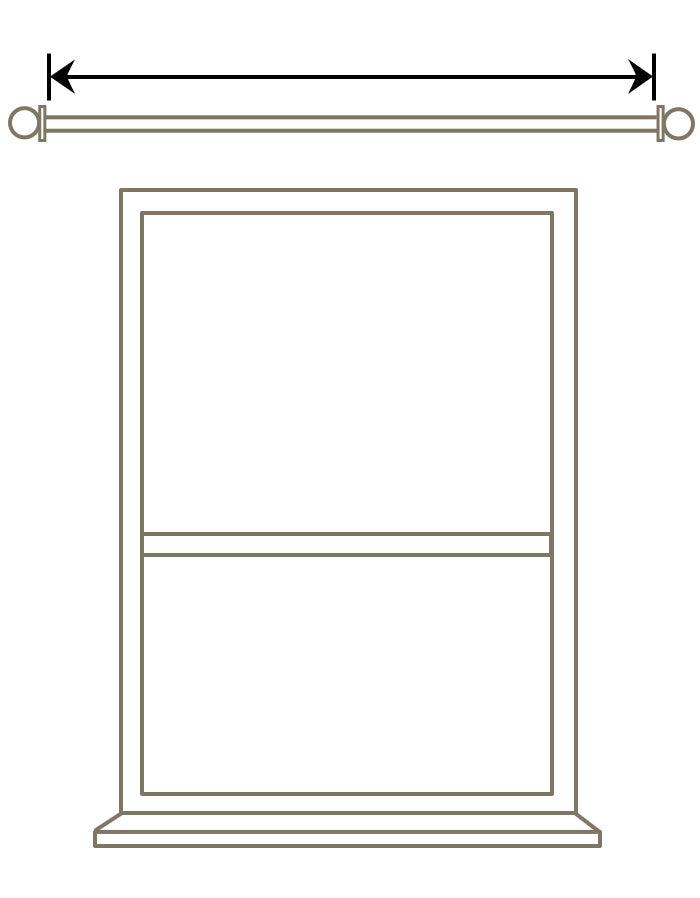
inches
What's your window width? (Frame outer edge to edge.)
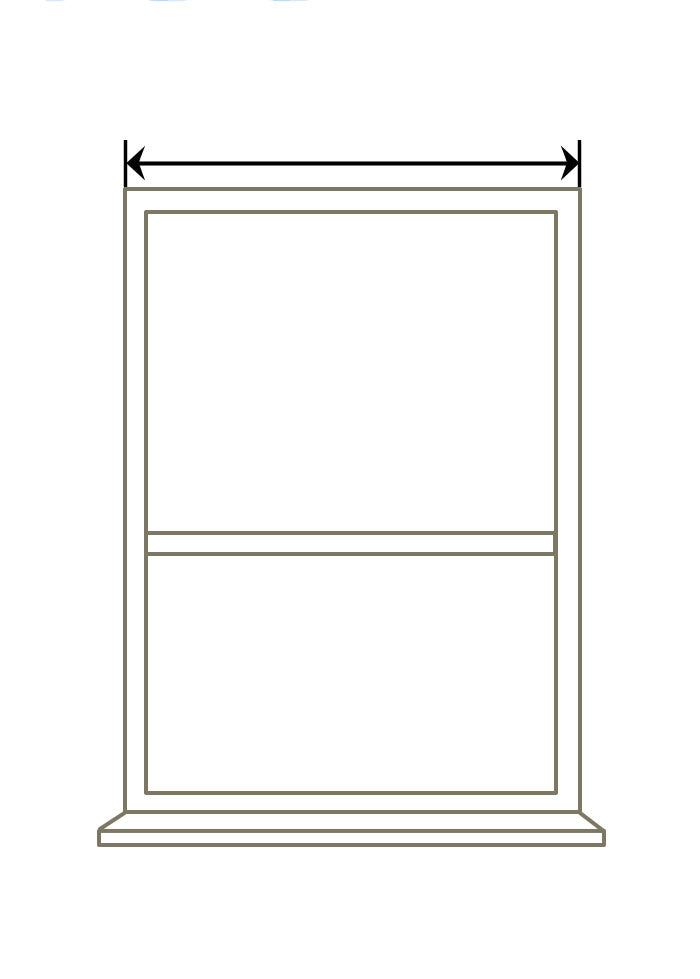
inches
What's the height from bottom tip of rod to floor.
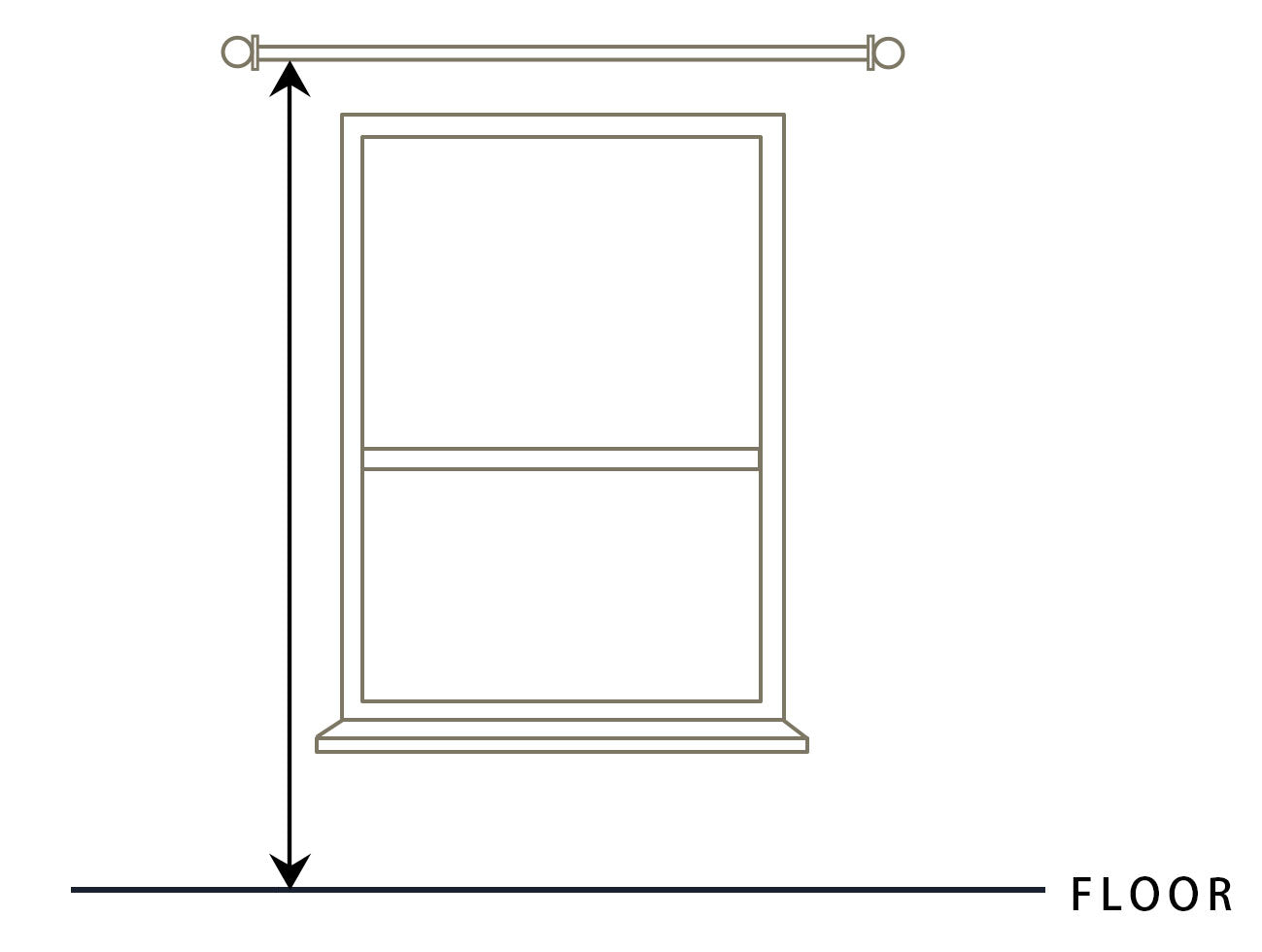
inches
What's the height from window top to floor?
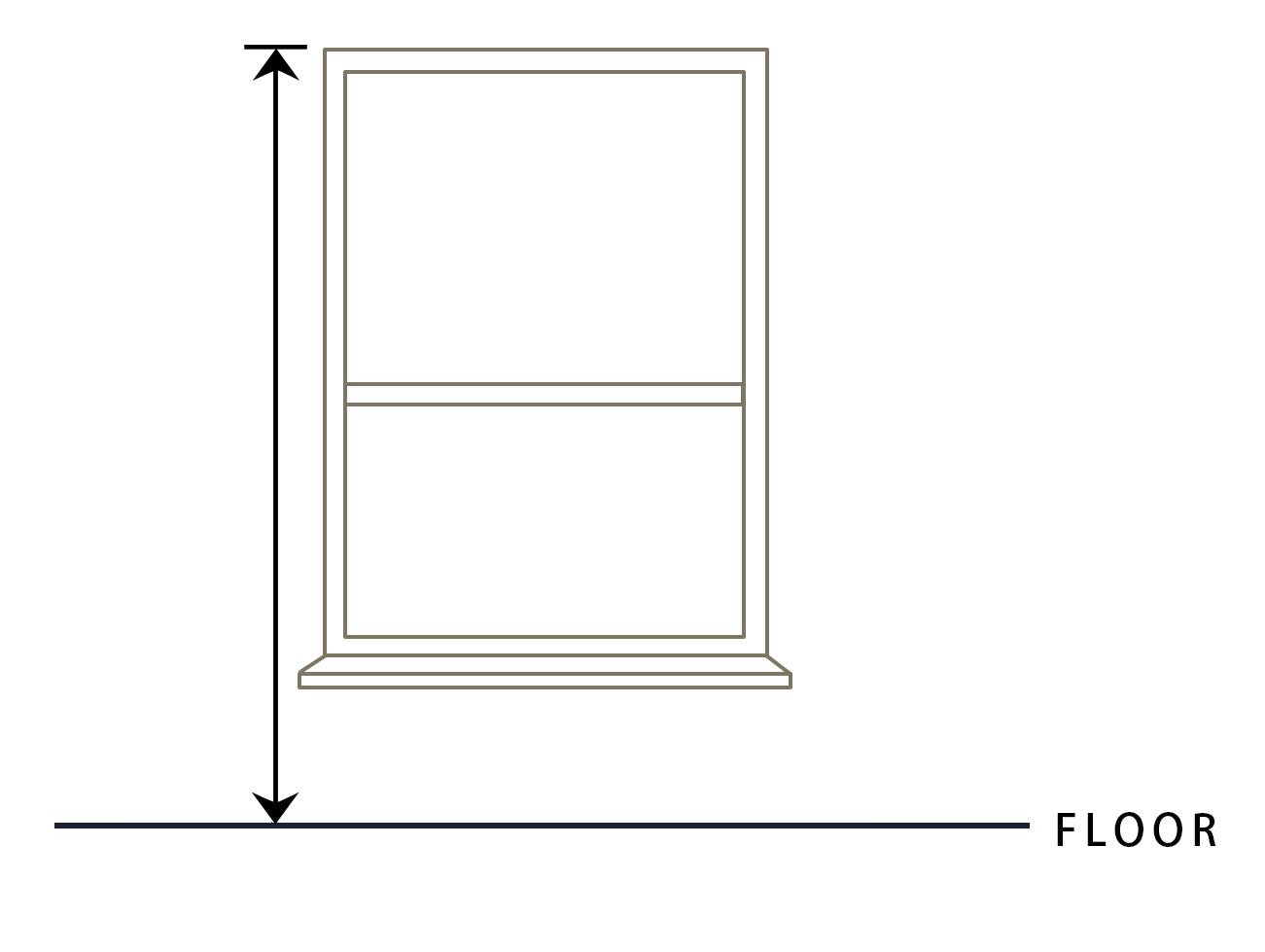
inches
How many inches beyond your window frame would the rod extend?
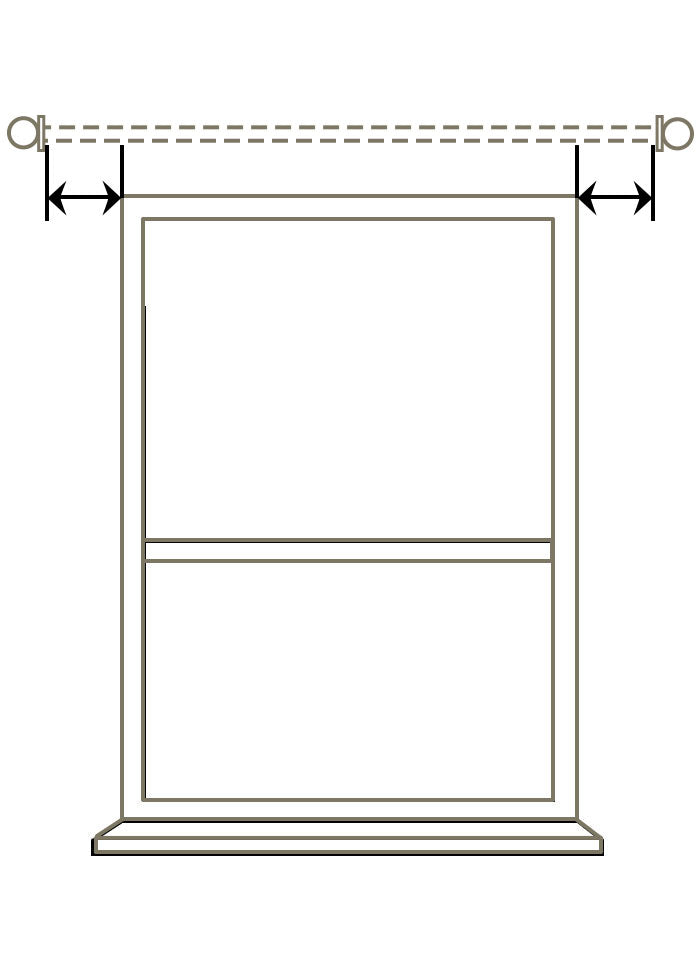
LEFT
inches
RIGHT
inches
Wider panels will be roughly 10-15'' when kept stacked back- will be more for wide windows and doors.
How many inches above the window frame would you mount the rod?
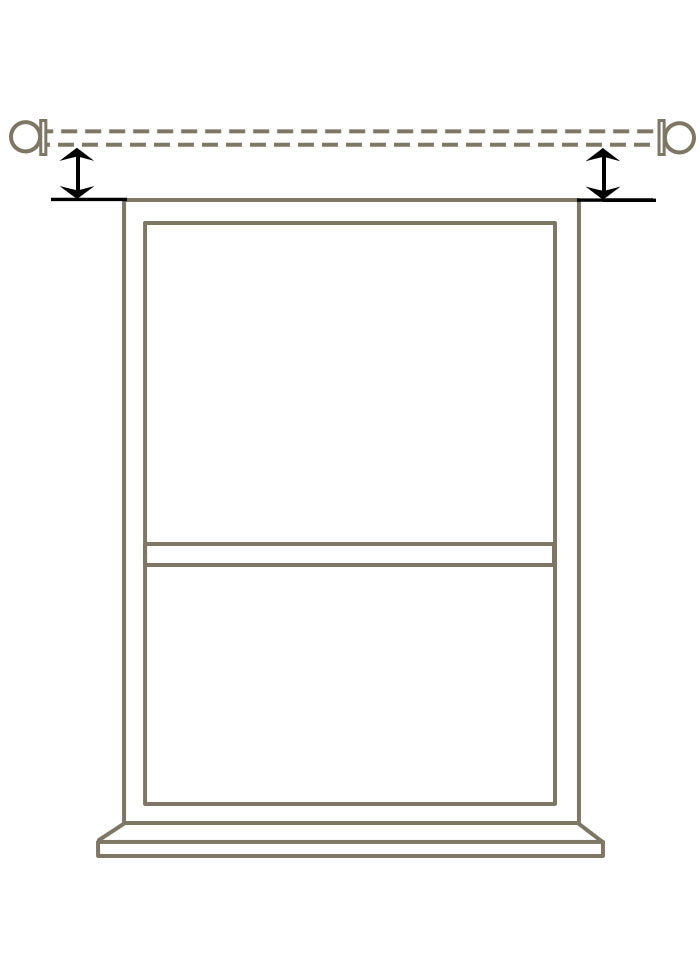
inches
To provide visual height to room, mount rod closer to ceiling line. In general, rods should be mounted at least 6-8'' above window frame, if you have wall space.
Do you want single or split panels?
Choose One
What king of finished look would you like for your drapes?
Choose fullness based on that.
Choose one
Step 7
What kind of finished length would you like for your drapes?
What kind of finished length would you like for your drapes?
Choose one
ALL DONE
Your recommended dimensions for your panel are
For Pleat Heading Style

Step 1: Measure the Curtain Rod Width and Placement
If you have installed a curtain rod, measure the length of the rod.
If a curtain rod is not installed, first check where the curtain rod will be installed above and to the sides of the window frame. Consider how high you want the rod to be to create the desired visual effect.
- Height Above the Window Frame: Curtain rods are usually mounted 6-10 inches above the window frame to give the impression of a taller window. Lightly mark this height with a pencil or use masking tape as a guide.
- Width Beyond the Window Frame: To allow room for the curtain stack, extend the rod 6-15 inches beyond each side of the window frame. Lightly mark these spots with a pencil or use masking tape as a guide.

Step 2: Know HOMERILLA's Standard Fullness
To prevent your drapes from looking flat like a stretched sheet, it’s important to consider adding fullness for extra width.
Pleated Styles
The fabric’s fullness is already factored into the design. We use 160-200% fabric fullness to create the pleats, ensuring the curtains have a rich and luxurious appearance.
- 1.6x Fullness for pinch pleat, tailored pleat, inverted pleat, and goblet styles.
- 2x Fullness for triple pleat and triple tailored pleat styles.
This means you don’t need to add extra width for fullness—it’s already incorporated into the curtain-making process. Just choose the width you want.
Step 3: Determine The Width And Length of The Curtains
For Soft Top & Grommet Heading Style
The default fullness is set at 100%, but for drapes, you should aim for a fullness of 160-200% of the final measured width. A 160% fullness will give a more tailored look, while 200% fullness, which is recommended, will create a richer, more luxurious appearance. Here's a quick guide on recommended fullness:
- 1.6 times of the curtain rod length is a moderate gather.
- 2 times of the curtain rod length is a standard gather.
You'll need to choose the fullness ratio based on the type of header you're using. Additionally, you'll need to determine how many panels are necessary to achieve your desired fullness, as the fullness ratio can vary depending on the header style.
Soft Top
Grommet
Determine The Width of Curtains
- For Pleated Heading Style, Per Panel Width = Curtain Rod or Track Full Length / Panel Quantity
- For Soft Top Heading Style, Per Panel Width = (Curtain Rod or Track Full Length x 200% Fullness) / Panel Quantity
- For Grommet Heading Style, Per Panel Width = (Curtain Rod or Track Full Length x 200% Fullness) / Panel Quantity
Finding The Perfect Fit
Different lengths of curtains will give the room a different visual experience.
Tips
- Your customized curtains will be made to the exact width and length you specify.
- Heading styles include French Pleat, Triple French Pleat, Tailor Pleat, Triple Tailor Pleat, and Flat Hooks, all of which come with adjustable hooks and rings.
- Both width and length are measured with a steel tape measure and accurate to within 1 inch.
- Be sure to measure each window and doorway individually.
- Perceptions of fullness vary. Some may prefer a looser drape, while others may want a fuller, more gathered look. When choosing a fullness factor, consider your personal taste and the desired look for your space.
This guide offers recommendations and advice but does not cover all possible scenarios. For more complex measurements and additional advice, feel free to email us at service@homerilla.com.

